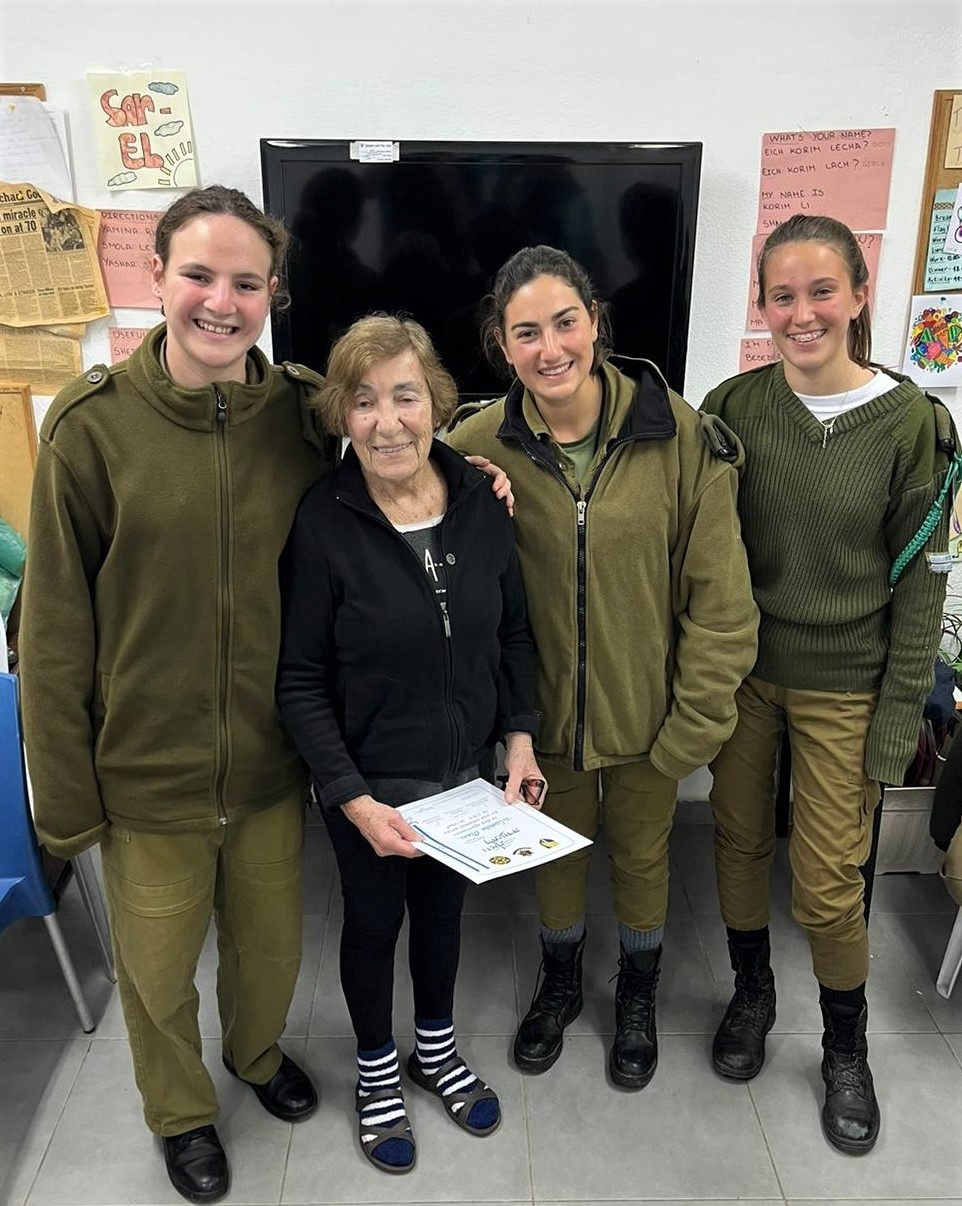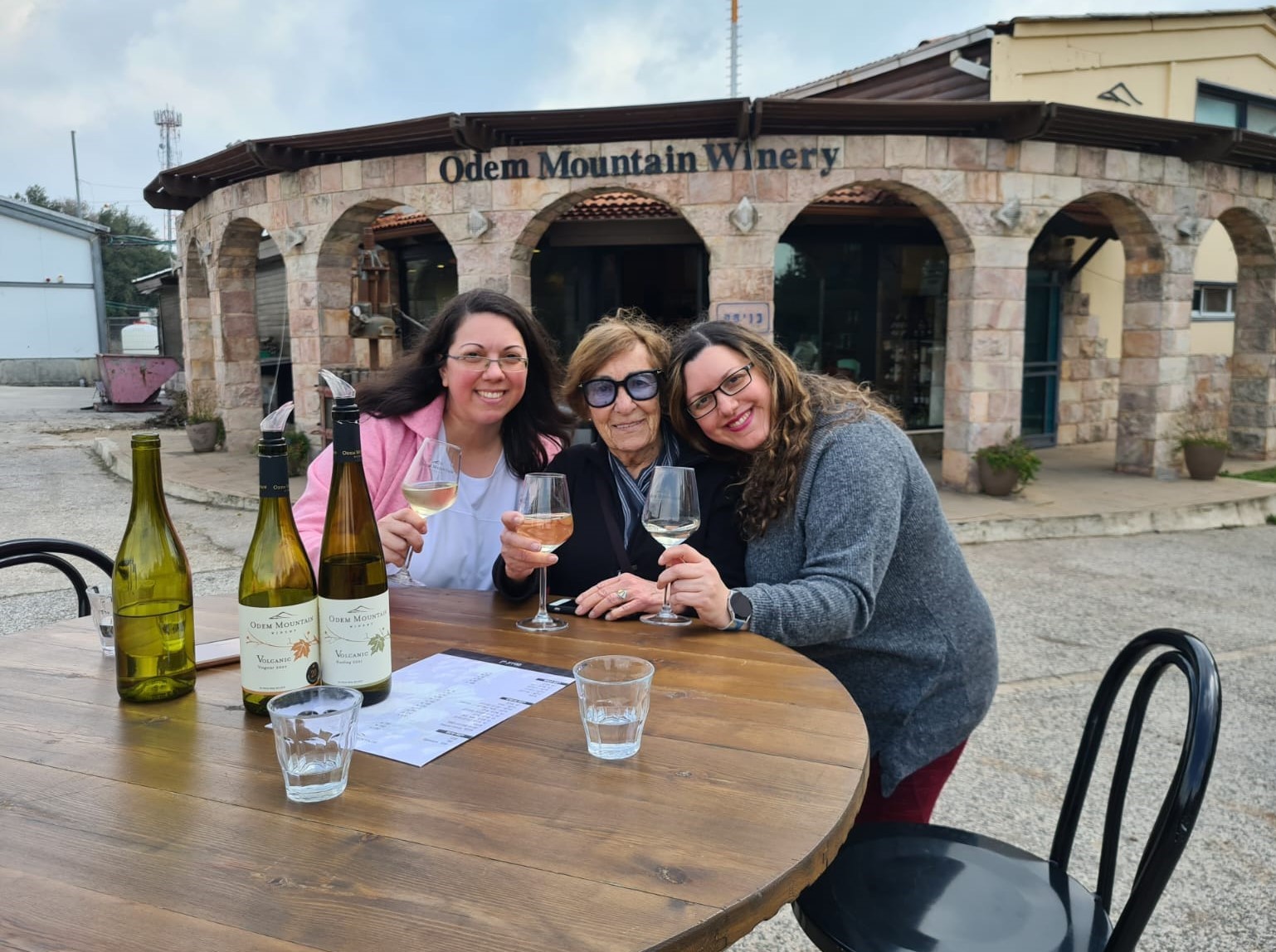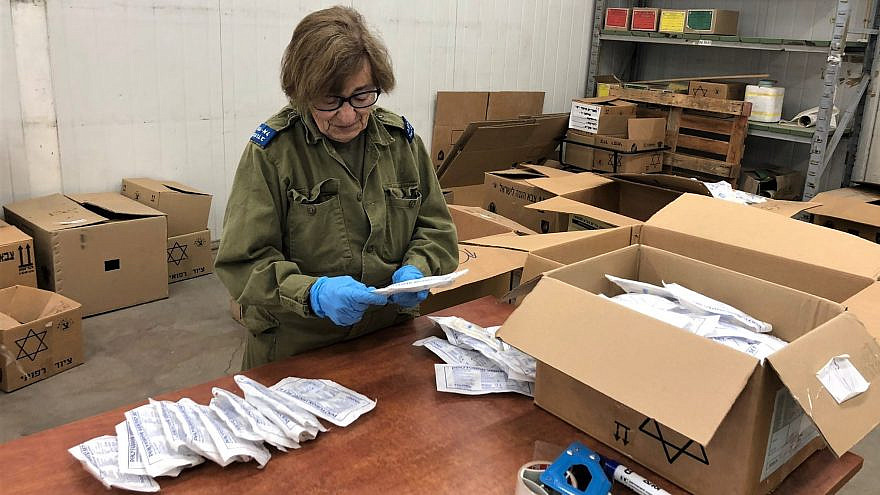Camilla Maas makes it clear that she doesn’t speak for Israelis. She doesn’t speak for American or international Jewry. The nonagenarian states plainly that she speaks for herself.
And for Sar-El, which partners in the United States with Volunteers for Israel.
Maas has become a celebrity of sorts for the program, which positions Jews from abroad on Israeli military bases around the country for two- and three-week stints. The ages of participants range considerably—from teens to, well, Maas. At 92, she has completed the program 16 times—not the most of any volunteer, she acknowledges, but certainly something noteworthy.
The organization had its beginnings in 1982 during the war with Lebanon, when as a result, farms in Israel’s north were short-handed, and Jews overseas were asked to help. A year later, Sar-El—the Hebrew acronym meaning “Service for Israel”—was founded as a nonpolitical, nonprofit entity. Since then, more than 160,000 volunteers have provided logistical support to the IDF, according to the nonprofit’s website.
And so, Maas treks from her home in Rochester, N.Y., and flies to Ben-Gurion International Airport, where she meets the rest of the group and the guide, and makes her way to a basis, a “base.” Once there, she is given an olive-green uniform (she chooses to wear sneakers rather than requisite boots), a bed in the barracks and meals in the mess hall. She says she’s never jet-lagged; she has traveled the world plenty and once at her destination is “excited to be there, ready to go,” and in this case, “do whatever needs done.”
That can mean organizing clothing or office materials, cleaning tanks and equipment, or, her favorite activity, packing medical supplies. Being on her feet all day isn’t a problem—“I don’t do well sitting down; it’s better when I move.” More than that, she insists, “it’s wonderful to find purposeful activities that benefit people and gratify the doer.”
She amends that sentence a bit: “It’s not about what you do but why you are doing it. You are there to relieve a soldier or army personnel. It’s grunt work. It’s not a vacation; it’s a life experience. But what can be better than serving in the Israel Defense Forces?”
There are those who might quibble with such a statement, but Maas doesn’t say this lightly. She was born and raised in Frankfurt, Germany—that is, until she was 10. In 1941, the situation had become dire for Jews. She and about 50 “unaccompanied children” were shuttled out of the country, where she spent a year-and-a-half in Belgium and France before being reunited with her younger brother (something she insisted on, she says, before leaving Europe). Along with others, they boarded a ship for the United States in 1941, sailing to Lisbon and then New York in a trip that took two weeks.
Maas was sent to Rochester and placed with a foster family. She went to school there, grew up there, got married there, raised four children there and, just recently, sold her townhouse and moved to an independent Jewish living community there. These days, she is also a grandmother of 12 and great-grandmother four times over, with a fifth on the way.
Still, “I am a Holocaust kid,” she states matter-of-factly.
Her mother didn’t survive. Her father was liberated from Buchenwald and eventually went to Palestine, where they had family. In 1946, he came to Rochester to see her and her brother, and, so as not to uproot them, went back and forth representing a publishing house in what would become modern-day Israel in 1948.

‘It’s purposeful volunteerism’
When Maas was winding down her career, she says she wanted to do something meaningful. She had been to Israel before—first as a teenager as early as 1949. Other trips followed over the years, including a Hadassah mission and visits to her father. But as much as she enjoyed touring the country, she needed more.
Her first stint with Sar-El was in 2007 in the Negev Desert, cleaning equipment. The medical bases followed, where she would check expiration dates on supply kits and rotate equipment. Her most recent trip, No. 16, was in March.
“In retirement, everyone has a different way of enjoying their years,” she says. “For me, it’s purposeful volunteerism.”
She notes that she gets much in return—the commanders and soldiers thank her and the other volunteers profusely, and she meets an array of individuals in every group. Classes in Jewish and Israeli knowledge are offered in the evenings, as are other activities. Sometimes, that includes celebrating a holiday. Shabbat provides some free time off the base, when she gets to be with family as well as take in a little sightseeing.

As for the food? “It’s very edible,” she replies. “Nobody loses a lot of weight on the trip.”
Maas volunteers in Rochester, too—at a Jewish day school, with Jewish Family Services and the Jewish Community Center, during Israel Independence Week, and, this year, serving as an usher in theaters. Over the years, she has also started speaking to students about her life.
Where does she get the energy? “It’s inherited.”
Why Israel, time and again? “It’s remarkable. It’s innovative. It gives me pride and reinforces my Jewish identity.”
Is she wrapping up her army days? “No, I’m not done.”
While Maas doesn’t explicitly encourage others to sign up for Sar-El, she does make it a point to say “it is essential that we support Israel. We need Israel.”
And then, with words survivors express so lucidly: “We never, ever know when history might repeat itself. The Holocaust was not the first time that Jews were discriminated against and driven out. We were modern, Orthodox Jews living in a beautiful apartment in Frankfurt. My father was a business owner. By the time we realized what was happening and he had the papers to leave, it was too late.”


























